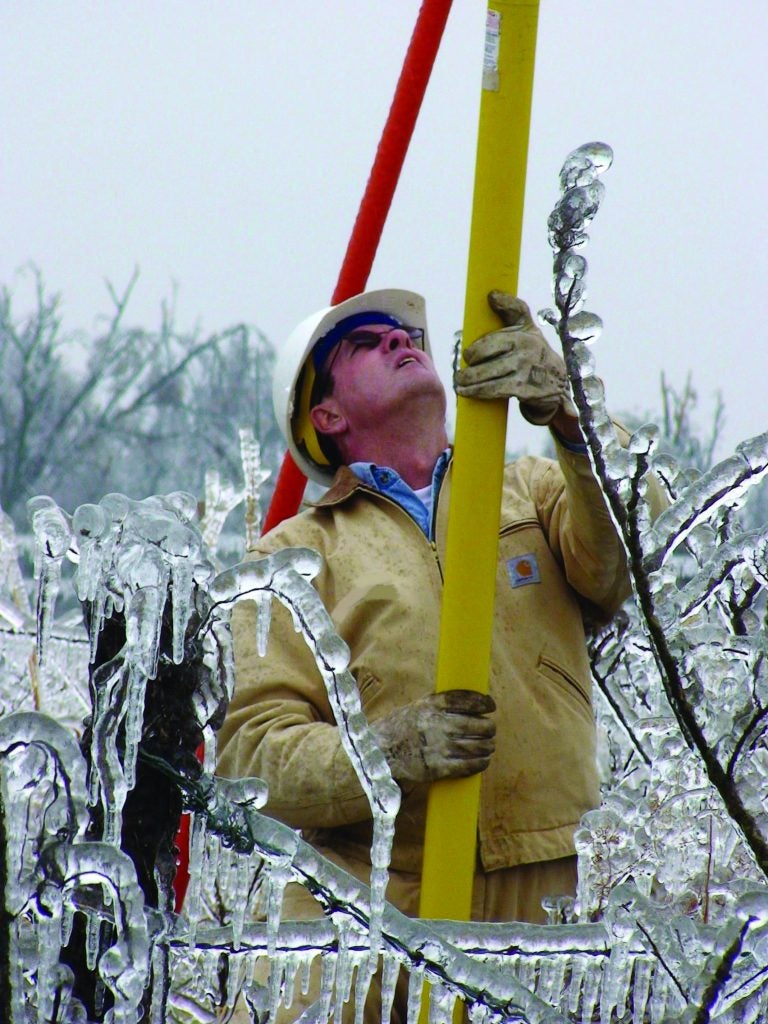
The Old Farmer’s Almanac, founded in 1792, claims an 80 percent accuracy rate – and if you believe that, you might be optimistic about the weather forecast for January and February. Recently released predictions call for warmer-than-average temperatures and above normal rainfall and below average snowfall. Illinois weather is often unpredictable and chances are there will be a few winter storms that cause power outages.
At Eastern Illini we strive to provide reliable electricity to our members; however, there are times when Mother Nature has other plans. Most of us can ride out a storm from the comfort and convenience of our homes. However, there is a group of professionals that spring into action when the weather takes a turn for the worst – our co-op linemen. The crews perform proactive and planned electrical line work on most days, but when an ice storm hits, regardless of the day or time, it’s all hands on deck.
Braving snow and ice storms are challenging conditions for linemen – often climbing 40 or more feet in the air, carrying heavy equipment to restore power.
Listed as one of the 10 most dangerous jobs in the U.S., linemen must perform detailed tasks next to high voltage power lines. To help keep them safe, linemen wear specialized protective clothing and equipment at all times when on the job. This includes special fire-resistant clothing that will self-extinguish, limiting potential injuries from burns and sparks. Insulated and rubber gloves are worn in tandem to protect them from electrical shock. While the gear performs a critical function, it also adds additional weight and bulk, making the job more complex.
In addition to the highly visible tasks linemen perform, their job today goes far beyond climbing to the top of a pole to repair a wire. They are also information experts that can pinpoint an outage from miles away and restore power remotely. Line crews use their laptops and cell phones to map outages, take pictures of their work, and troubleshoot problems. In our territory, Eastern Illini linemen are responsible for keeping 4,500 miles of lines across ten counties working, in order to bring power to your home and our local community 24/7, regardless of the weather, holidays or personal considerations.
While some of the tools that linemen use have changed over the years, namely the use of technology, the dedication to the job has not. Being a lineman is not a glamorous profession. It is inherently dangerous, requiring them to work near high voltage lines in the worst of conditions, at any time of the day or night.
